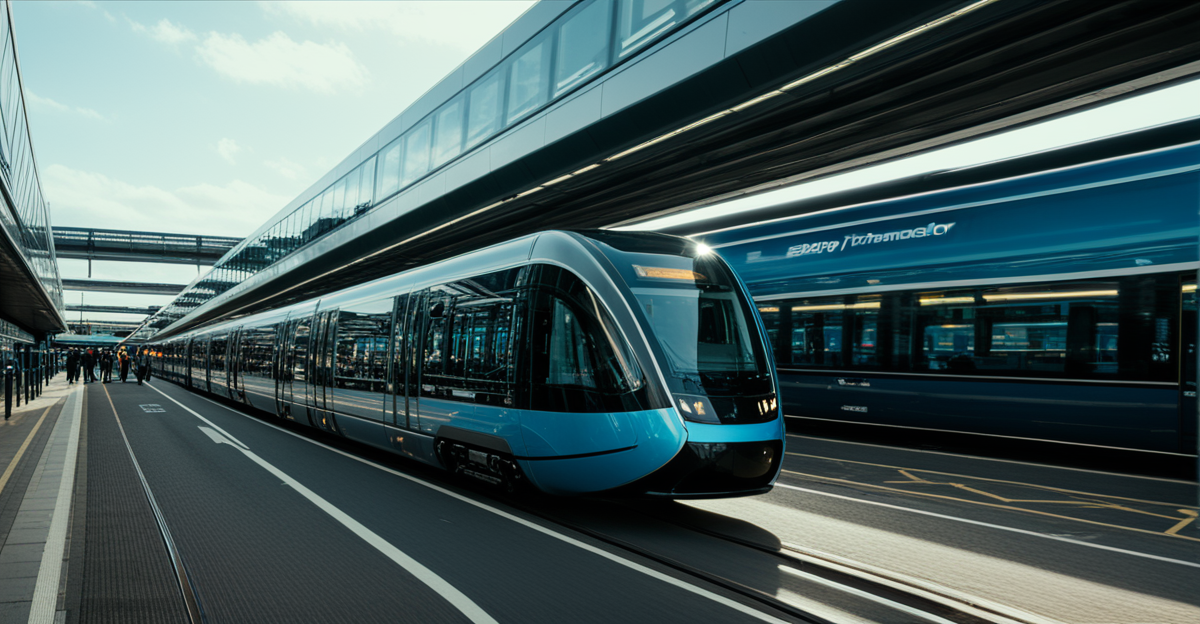UK Technological Innovations Transforming Transportation
The UK transportation technology sector is undergoing significant innovation reshaping how people and goods move. Key drivers of change include government incentives promoting cleaner travel, advancements in digital connectivity, and a strong culture of research and development. These factors position the UK as a leader in crafting cutting-edge transport solutions.
Among the forefront technologies influencing the sector are electrification, autonomous systems, and smart infrastructure. UK-based research institutions and private companies invest heavily in developing these technologies, emphasizing collaboration to accelerate progress. This synergy helps translate innovative concepts into practical applications, such as intelligent traffic management and digital signalling embedded within smart cities.
Also to read : How Does UK Technology Impact Global Innovation Trends?
Innovation in transport also focuses on sustainability and efficiency, addressing urban congestion and environmental challenges. The UK’s strategic commitment to R&D ensures continuous improvement and competitiveness in global travel tech markets. By fostering innovation in transport, the UK boosts not only domestic mobility but also its export potential, supporting economic growth.
Understanding the interplay between technological advances and practical deployment in the UK context is essential. These innovations collectively redefine travel experiences and help create a more connected, sustainable transportation future.
Also to read : How is UK technology driving advancements in artificial intelligence?
Electric Vehicles and Sustainable Mobility Initiatives
The surge in electric vehicles UK adoption is a cornerstone of the UK’s green transport strategy. Government incentives, such as grants and expanding charging infrastructure, accelerate this growth. The number of electric vehicle (EV) charging points across urban and rural areas has risen dramatically, reducing range anxiety and promoting broader EV uptake.
Leading UK companies contribute actively to this transformation by developing innovative EV models and integrating sustainable manufacturing processes. For example, investment focuses on battery technology improvements for longer ranges and shorter charging times. These initiatives reflect a broader commitment to UK sustainable mobility, emphasizing reduced carbon emissions and improved urban air quality as high priorities.
What impact does the expansion of electric vehicles UK infrastructure have on the environment? The answer is significant: it directly lowers harmful emissions from traditional fossil fuel vehicles. A cleaner urban atmosphere benefits public health and aligns with the UK’s climate goals. Such impacts underscore why innovation in transport, particularly in electric vehicles UK, remains vital for shaping sustainable cities and reducing ecological footprints. Continued collaboration between government policy and private enterprise ensures these initiatives strengthen UK sustainable mobility outcomes effectively.
Autonomous and Connected Transport Systems
Autonomous vehicles UK are at the forefront of transport innovation. These self-driving cars rely on advanced sensors, machine learning, and real-time data to navigate safely. The UK government supports pilot projects across several cities, testing autonomous shuttles and delivery robots to evaluate performance and integration. This proactive approach accelerates development and public acceptance.
Connected transport systems link vehicles with infrastructure and other road users, enhancing safety and efficiency. Smart vehicles UK communicate via dedicated networks, enabling features like collision avoidance and traffic flow optimization. This interconnectedness reduces accidents and congestion, making journeys smoother and safer.
The integration of autonomous vehicles UK with connected transport expands possibilities for smart urban mobility. However, regulatory frameworks remain crucial. Authorities work to establish standards addressing privacy, cybersecurity, and liability issues to ensure safe deployment.
In summary, autonomous vehicles UK combined with connected transport systems form a transformative duo. They promise reduced emissions, improved road safety, and enhanced travel flexibility. This combination exemplifies the UK’s leadership in innovation in transport and global UK travel tech advancement.
Smart Infrastructure Enhancing Urban Mobility
Smart infrastructure UK forms a vital backbone for advancing urban mobility solutions. Central to this innovation in transport is the deployment of intelligent transport systems that employ sensors, data analytics, and AI to optimise traffic flow and reduce congestion. For example, smart roadways dynamically adjust traffic signals based on real-time conditions, easing bottlenecks and cutting journey times.
Digital signalling enhances rail and road networks by enabling faster, safer communication across transit corridors. This reduces delays and improves reliability, critical for maintaining efficient public and freight transport. UK-based research institutions collaborate closely with government bodies and private firms to pioneer these technologies, ensuring solutions are tailored for diverse urban environments.
How does smart infrastructure UK improve transport efficiency? It leverages comprehensive data collected from connected devices to predict traffic patterns and respond swiftly to disruptions. This proactive management leads to smoother travel and lower emissions, supporting sustainability goals.
Moreover, partnerships across sectors accelerate the rollout of upgraded infrastructure. These collaborations integrate technical expertise with practical insights, making smart infrastructure UK a cornerstone in transforming the urban transportation landscape. This synergy demonstrates the UK’s commitment to leveraging innovation in transport for a cleaner, more connected future.
Public Transit Modernisation and Digitalisation
Modern public transit UK systems increasingly embrace digital transport solutions to enhance efficiency and user experience. Key upgrades include integrating contactless payment methods, which streamline boarding procedures and reduce delays. Real-time tracking tools offer commuters accurate arrival and departure information, improving journey planning and satisfaction.
Accessibility remains a focus in UK smart public transport. Innovations ensure that services accommodate passengers with disabilities, enhancing inclusivity across urban and rural areas. Moreover, investments target improving last-mile connectivity, enabling smoother transitions between modes like cycling, walking, and buses. These efforts address common commuter pain points and promote wider transit adoption.
How do these digital transport solutions transform public transit in the UK? They create more reliable, convenient, and user-friendly systems that respond dynamically to passenger needs. By leveraging data analytics and mobile technologies, operators can optimise route planning and resource allocation, reducing congestion and operational costs.
Collaboration between government entities and private companies accelerates these advancements. Public transit modernisation in the UK demonstrates how innovation in transport effectively balances technological progress with community accessibility and sustainability goals.
UK Technological Innovations Transforming Transportation
The UK transportation technology sector undergoes rapid evolution fueled by a combination of policy support, research excellence, and private sector innovation. Key drivers of change include government investments in clean energy and digital infrastructure, which create an environment ripe for innovation in transport. UK universities and tech companies lead in developing solutions such as electrified public transport, autonomous vehicles, and integrated mobility platforms.
Cutting-edge technologies shaping this sector involve AI-powered traffic management, advanced battery systems, and vehicle-to-infrastructure communication. These advancements enable smarter, safer, and more sustainable transport networks. The extensive focus on R&D cultivates robust pipelines for breakthroughs, strengthening the UK’s position as a hub for UK travel tech development.
Strategic collaboration among academia, government, and industry accelerates these innovations, ensuring practical applications reach markets efficiently. Examples include trialing autonomous buses in urban centers and deploying AI-driven analytics for traffic optimization. This integrated approach highlights the importance of coordinated effort in harnessing technology to meet modern mobility demands and future-proof UK transport infrastructure.



